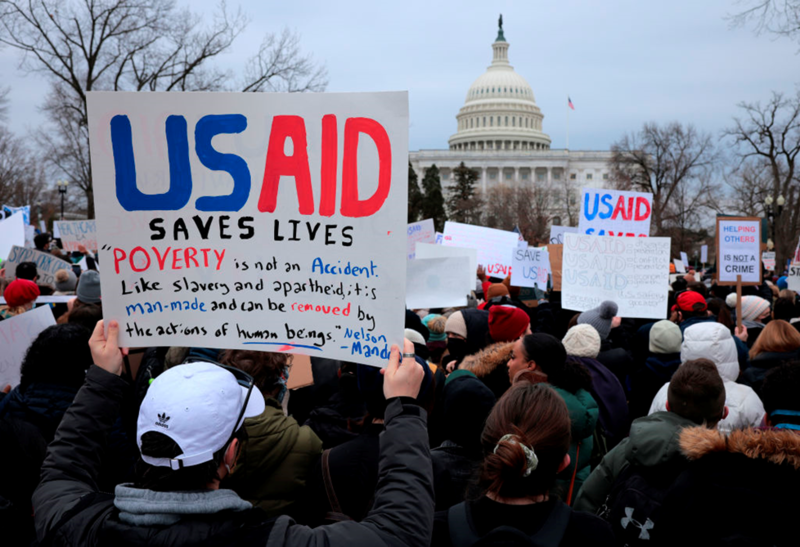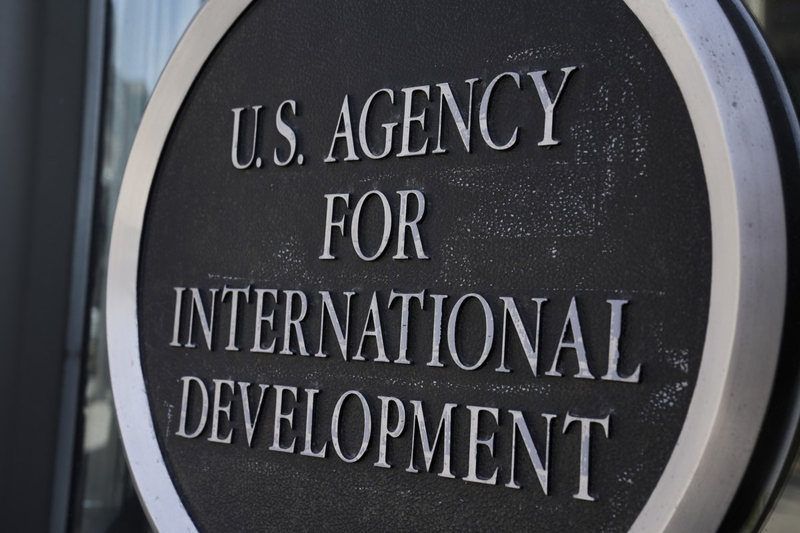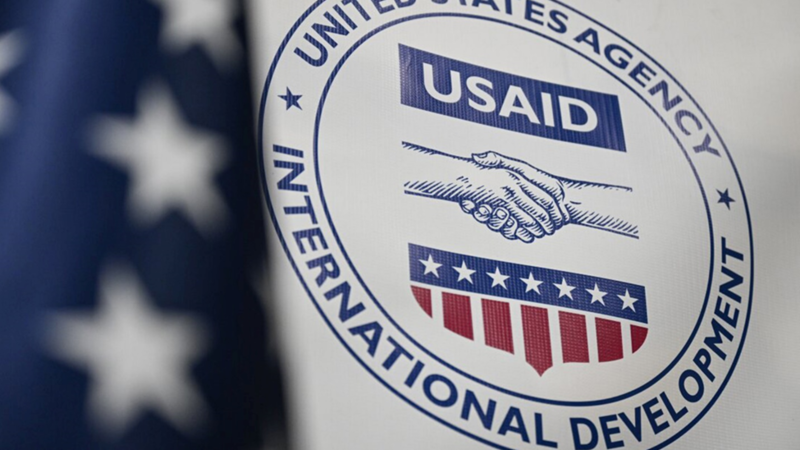The USAID Shutdown: A Global Crisis in Education and Development
Input
Modified
The United States Agency for International Development (USAID) has long been a critical player in global development, with a particular emphasis on humanitarian aid, healthcare, and education. The agency has been a critical participant in the promotion of U.S. soft power on a global scale by implementing capacity-building initiatives, scholarship programs, and development projects since its inception in 1961 by President John F. Kennedy. Nevertheless, the precipitous suspension and dismantling of USAID under former U.S. President Donald Trump has caused significant global repercussions, particularly in conflict-affected regions such as Afghanistan and Ukraine, as well as in South Asia and Central Asia.

The futures of students, researchers, and entire academic institutions have been jeopardized by the widespread cuts, which have not only halted thousands of educational and research initiatives. The repercussions of this decision are significant, affecting the very foundation of international cooperation, global development partnerships, and higher education access. USAID has played a critical role in the provision of educational assistance to low- and middle-income countries, with a particular emphasis on disaster-affected regions and conflict zones, for decades. The agency implemented a two-pronged strategy, which included the provision of funding for emergency schools, the distribution of learning materials, the establishment of accelerated learning programs, the reinforcement of higher education institutions, the development of teacher training programs, and the construction of local educational infrastructure to guarantee long-term sustainability.
USAID supported scholarships, research initiatives, and skill-building programs by collaborating with hundreds of U.S. universities and local institutions worldwide. In 2023, USAID collaborated with more than 830 higher education institutions, resulting in the publication of 690 peer-reviewed research papers and the reach of nearly 100,000 students. USAID's significant contributions to education include the reconstruction of educational systems in Afghanistan following the 9/11 attacks, the enhancement of higher education systems in Pakistan, and the implementation of workforce training and technical education programs to provide job skills to young people in countries such as Nepal, Iraq, and Myanmar. In addition to its contributions to education, USAID has been instrumental in the mitigation of climate change, the establishment of food security, the preparation of disasters, and the promotion of economic growth in numerous regions worldwide.

Donald Trump, the former president, issued an executive order on January 20, 2025, suspending all foreign aid. The order cited that USAID programs did not support American interests. The action was a component of Trump's overarching "America First" policy, which was designed to decrease government expenditures on global development initiatives. Elon Musk, who was appointed to manage the newly established Department of Government Efficiency, characterized USAID as a "criminal organization" and reduced its budget. The State Department will assume the responsibilities of USAID, as confirmed by U.S. Secretary of State Marco Rubio. However, only programs that directly benefit U.S. national interests will be retained. The remaining operations were overseen by only 300 staff members, as over 14,000 USAID employees were laid off or furloughed. The New York Times reported that approximately 800 USAID contracts and grants were at risk of cancellation. The majority of education, healthcare, and infrastructure projects were completely halted, while emergency humanitarian aid, such as food distribution, was exempted.
The abrupt cessation of funding from USAID has had catastrophic consequences for higher education institutions worldwide. The crisis has been most severe in South Asia, where USAID has historically been a significant donor for infrastructure development, research, and scholarships. 39 projects supported by USAID in Pakistan, which are valued at $845 million, have been suspended. These projects include the reconstruction of schools in conflict-hit Khyber-Pakhtunkhwa and scholarships for women and flood-affected students. The Higher Education Commission of Pakistan is currently in a state of panic as it attempts to identify alternative funding sources. Doctoral and postgraduate students in Myanmar are concerned that they will be unable to conclude their studies due to the freezing of $45 million in USAID funding for more than 400 students in Southeast Asia. Independent University in Bangladesh was compelled to suspend a solar microgrid project that was funded by USAID, and the Applied Democracy Lab at Dhaka University was forced to discontinue democracy education programs. More than 1,000 employees have been terminated from health research centers that receive funding from USAID. The Higher Education Partnership for Disaster Resilient Infrastructure, a $5 million project with Virginia Tech, is currently in jeopardy due to the $2.86 billion in USAID-funded projects in India since 2001. The project is facing ambiguity and delays. Climate action in one of the world's most vulnerable countries to climate change is at risk due to the funding cut, according to experts.

Critics have cautioned that the U.S. withdrawal from global development efforts will result in a power vacuum that China, Russia, and Iran could exploit, and the USAID closure has had far-reaching geopolitical consequences. Thirty-seven members of the U.S. Senate Foreign Relations Committee wrote to Marco Rubio, cautioning that China, Russia, and Iran are rapidly exploiting the vacuum left by the U.S. The cessation of USAID assistance to 130 countries has had a global impact on humanitarian, educational, and economic initiatives. Some of the largest recipients of USAID, including Ukraine, Ethiopia, Jordan, Afghanistan, and Nigeria, are currently experiencing difficulty in compensating for the reduction in U.S. aid.
Although some academics contend that countries such as Pakistan should decrease their dependence on foreign aid, others emphasize the critical role that USAID has played in fostering educational access and stability. Critics of the USAID closure underscore the difficulty of replacing education and capacity-building initiatives. Academics caution that the cessation of research collaborations and scholarships will have long-term repercussions on the production of knowledge and scientific innovation in developing countries. Experts warn that the formation of new geopolitical dependencies may result from the shifting alliances between China and the European Union, which are being pursued by certain developing nations seeking alternative funding. Additionally, the joint research projects and knowledge exchange that have historically contributed to technological and medicinal advancements could be impacted, potentially disrupting the long-standing collaborations between U.S. and foreign universities.
This profound shift in U.S. foreign policy is exemplified by the dismantling of USAID under Trump, Musk, and Rubio. The long-term repercussions of this decision are profound, as billions in funding have been halted, thousands of students are left in limbo, and global research initiatives have been abandoned. Critics caution that the abrupt withdrawal of the United States from global development will erode its credibility and influence, despite the fact that proponents contend that the move eliminates wasteful expenditure. The geopolitical landscape of international aid and education is on the brink of a substantial transformation as China and Russia fill the vacuum. The question remains: Will the world be better off without USAID, or will the absence of U.S. foreign aid result in greater instability and inequality? The trajectory of global development and international relations in the years ahead will likely be determined by the outcome of this policy shift.





















